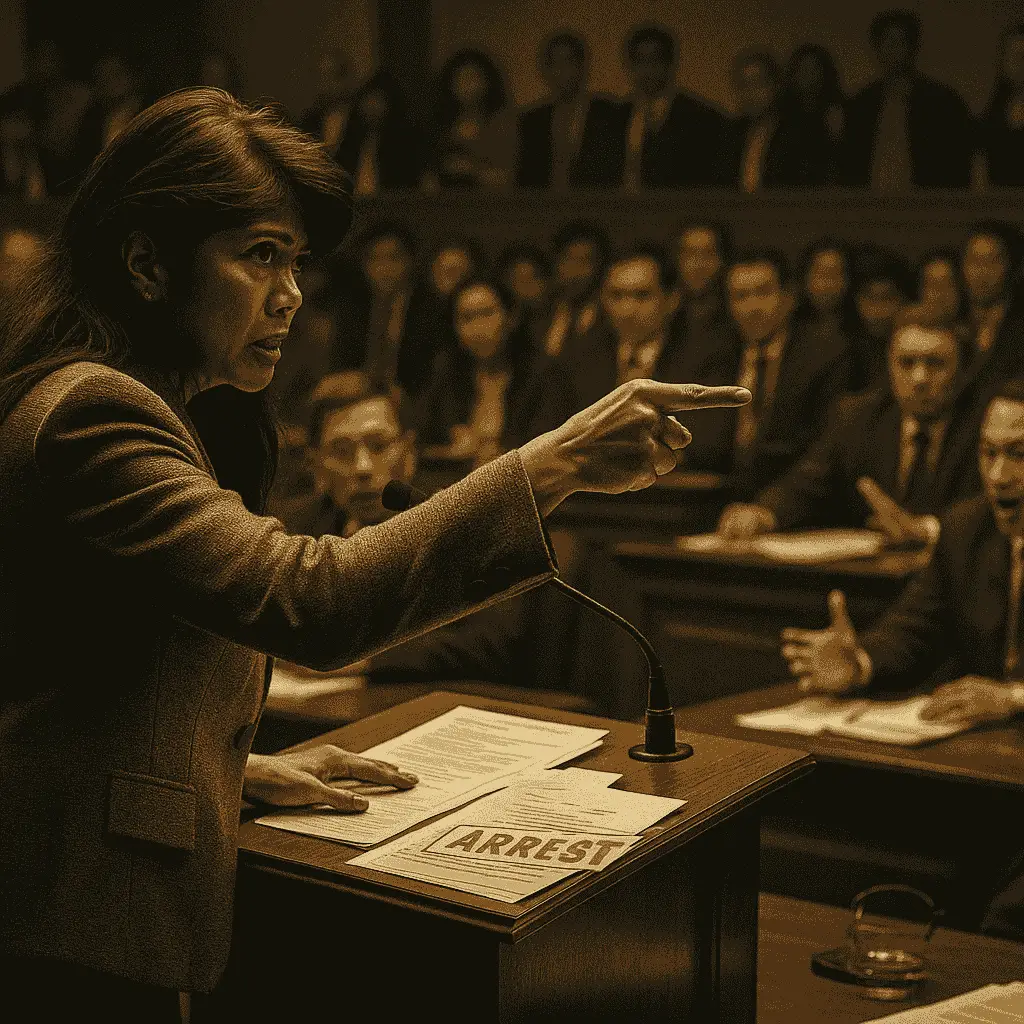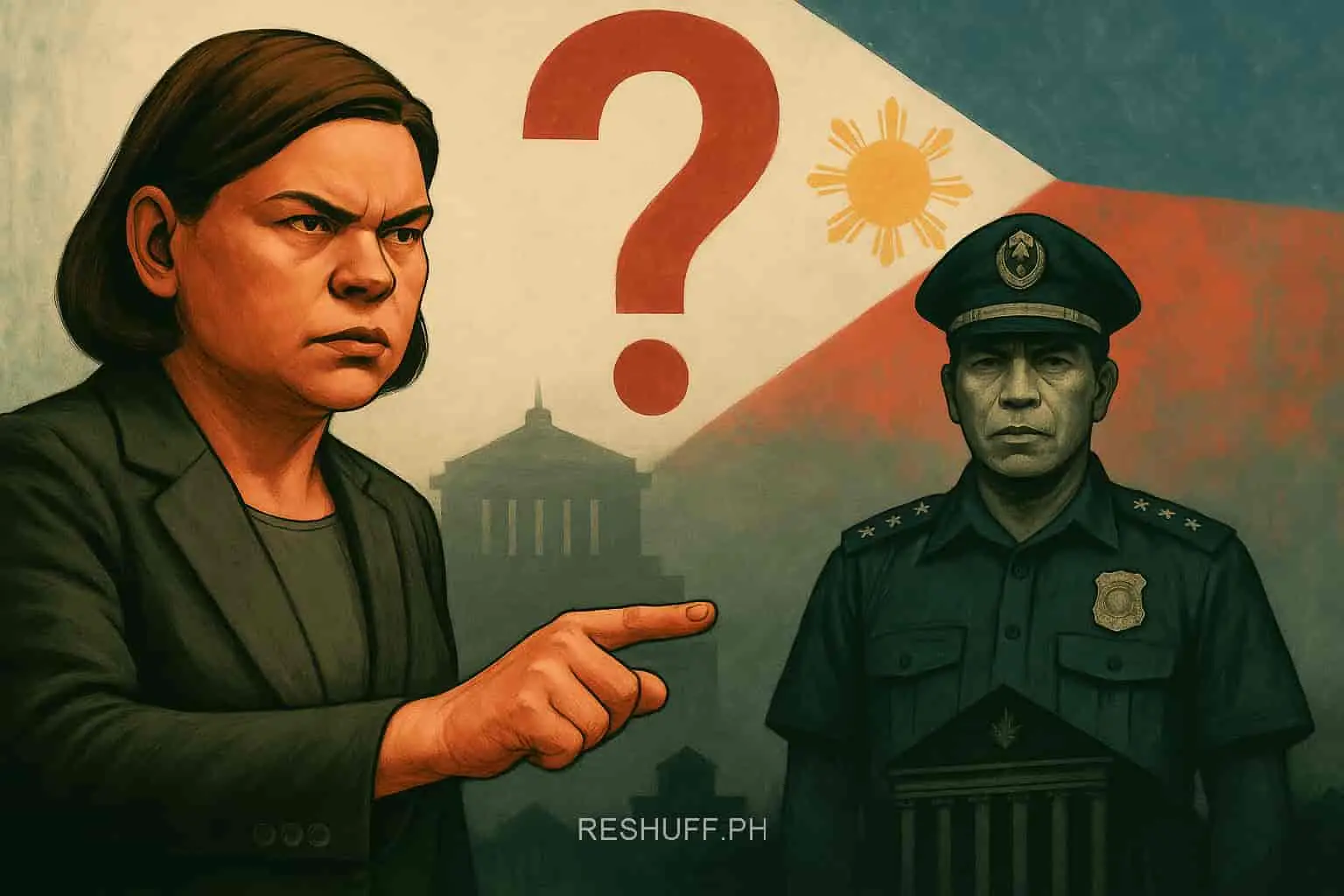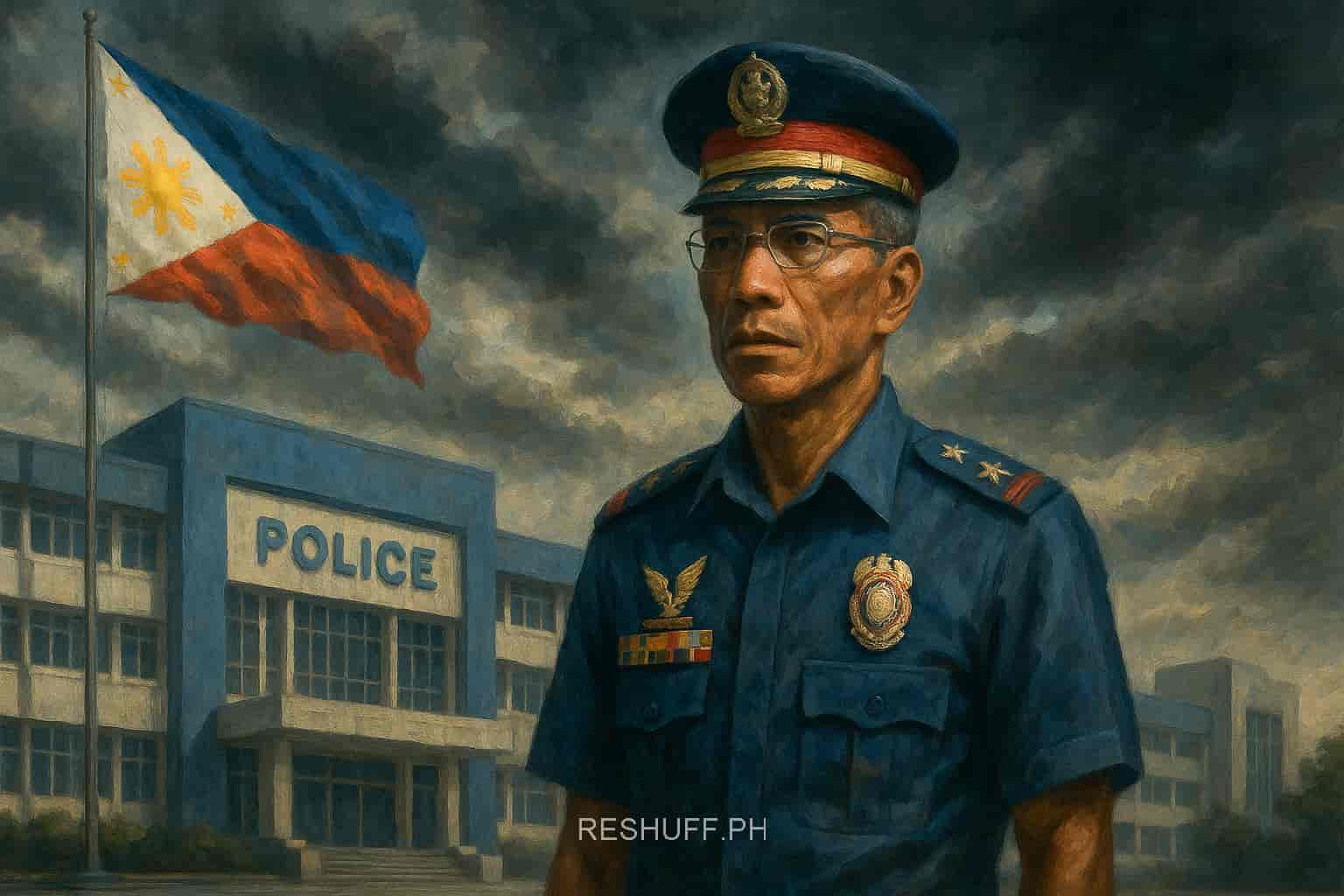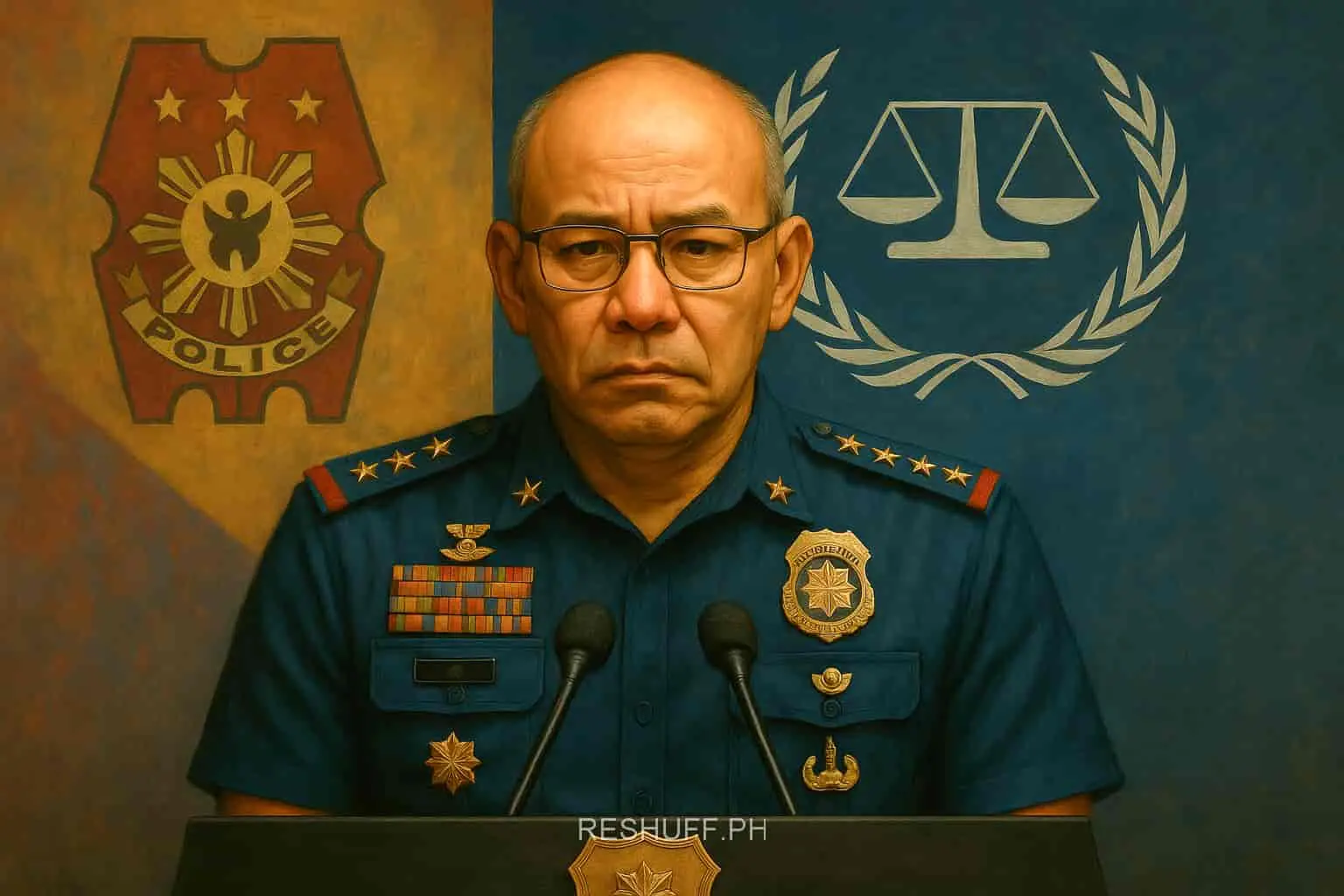Marcos alleges that these officials not only violated Duterte’s constitutional rights but also acted in a coordinated effort to undermine the Duterte family’s influence. “The Constitutional safeguards guaranteeing liberty and due process of law were not observed,” Marcos said, noting that no Philippine court issued a warrant, and the arrest did not meet exceptions for warrantless arrests.
A Politically Charged Arrest?
Marcos has been vocal about her belief that Duterte’s arrest was politically motivated. “There is a clear pattern where major political incidents precede significant statements and actions of the administration relative to the ICC,” she stated in the committee’s report (PhilSTAR Life). She pointed to a series of events that suggest a calculated effort:
Duterte’s Criticism of the People’s Initiative: After Duterte spoke out against a process allowing constitutional amendments, President Ferdinand Marcos Jr. responded by calling the Philippines an “open country,” suggesting limited action against the ICC unless it acted illegally.
Quad Committee Hearings: Following Duterte’s appearance at hearings in November 2024, the administration, through Executive Secretary Lucas Bersamin, indicated potential cooperation with Interpol if the ICC sought intervention.
Iglesia ni Cristo Rally: After a January 13, 2025, peace rally, the administration launched “Oplan Tugis” (Operation Pursuit), followed by DOJ Secretary Remulla’s openness to ICC discussions.
Marcos alleges that the arrest was part of a “whole-of-government effort to bring down the Dutertes.” She pointed to the House of Representatives’ investigations into extrajudicial killings linked to Duterte as early as May 2024, which expanded through the Quadcomm hearings in August. By October 2024, ICC personnel reportedly arrived in the Philippines, gathering documents with government assistance to secure Duterte’s arrest warrant. Marcos also noted the impeachment of Vice President Sara Duterte, suggesting it was tied to her potential candidacy in the 2028 elections.
“The arrest of FPRRD was part of a whole-of-government effort to bring down the Dutertes,” Marcos declared, framing the events as a strategic attack on her family’s political legacy.
Obstructing the Truth?
Marcos criticized the use of executive privilege and the sub judice rule by officials during Senate hearings, claiming these were tactics to obstruct the committee’s investigation. “They cited these rules to avoid answering crucial questions about who ordered the arrest and how it was carried out,” she stated. For instance, DILG Secretary Jonvic Remulla invoked executive privilege when describing the arrest as a “group effort,” only to later dismiss it as “chismis” (gossip). When pressed, DOJ Secretary Jesus Crispin Remulla reportedly used “executive privilege” to deflect scrutiny.
The non-attendance of officials at the April 3 hearing and their selective responses on April 10 further frustrated Marcos’ efforts. “They hid behind legal jargon to keep the truth buried,” she said, emphasizing that the committee was unable to clarify who ordered Duterte’s arrest, his transport to The Hague, or how the plane was procured.
A Family Divided?
When asked about her relationship with her brother, President Ferdinand Marcos Jr., Imee Marcos offered a candid yet measured response. “I haven’t seen him in ages. I’m sure he’s not happy about what’s happening,” she said at a press conference following the report’s release. While acknowledging that Cabinet officials are “alter egos” of the president, she clarified that she has never fought with her brother. “Masamang-masama ang loob ko, ngunit, ang akin lamang, ‘di kami kailanman nag-away ng aking kapatid,” she said, translating to “I feel deeply hurt, but we have never fought”.
When pressed on who she considered the real adversaries, Marcos replied cryptically, “Abangan po ninyo” (Just wait and see), hinting at deeper forces at play. Her comments suggest a delicate balance between family loyalty and her pursuit of accountability.
Sovereignty at Stake
Marcos reiterated her commitment to protecting the Philippines’ sovereignty, a theme that resonates with many Filipinos wary of foreign intervention. “Kailangan managot ‘yung naglabag,” she said, meaning “Those who violated must be held accountable.” She argued that surrendering a former president to the ICC without due process sets a dangerous precedent. “Malinaw na ang pagsurrender ay para sa dayuhan lamang,” she added, implying that such actions should not serve foreign interests over national ones (GMA News).
The Senate’s preliminary findings, released on March 27, 2025, concluded that the Philippines had no legal obligation to arrest Duterte and turn him over to the ICC, further bolstering Marcos’ stance (GMA News). However, a DOJ memorandum dated March 6, 2025, which Marcos cited to question why Duterte was surrendered if a local case was being built, was later deemed “fake” by DOJ officials, adding another layer of controversy
A Nation Divided
Duterte’s arrest has roiled the Philippines ahead of the May 2025 midterm elections, with supporters rallying in Davao City on March 11, 2025, to protest what they see as an injustice (Rappler). The former president, the first Asian head of state charged by the ICC, faces accusations of murder as a crime against humanity tied to his 2016-2022 drug war, which killed thousands (Reuters). While some view the ICC case as long-overdue accountability, others, including Marcos, argue it’s a politically timed maneuver.
Human rights lawyer Neri Colmenares has criticized President Marcos Jr.’s “wishy-washy” stance on the ICC, suggesting it fuels public confusion (Rappler). Meanwhile, the accused officials have largely defended their actions, with some arguing the arrest complied with international obligations.
What Lies Ahead?
As the Senate investigation presses on, the lack of transparency from officials continues to hinder progress. Marcos’ call for charges has yet to be acted upon by the Ombudsman, and public opinion remains split. The controversy could reshape the political landscape, influence the Philippines’ relationship with the ICC, and test the Marcos-Duterte alliance that once dominated national politics.
For now, Imee Marcos stands firm, her voice a clarion call for accountability in a saga that has gripped the nation. “Our sovereignty and legal processes must remain paramount,” she said, a reminder that the fight is far from over
Reshuff PH
Latest News In The Philippines brought to you by Reshuff PH






